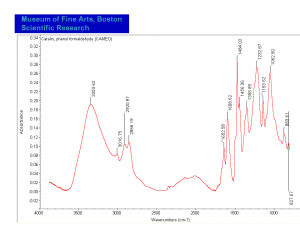Difference between revisions of "Catalin"
| Line 9: | Line 9: | ||
cast phenolic plastic; colored bakelite | cast phenolic plastic; colored bakelite | ||
| − | == | + | == Resources and Citations == |
* Hermann Kuhn, ''Conservation and Restoration of Works of Art and Antiquities'', Butterworths, London, 1986 | * Hermann Kuhn, ''Conservation and Restoration of Works of Art and Antiquities'', Butterworths, London, 1986 | ||
| − | * Website | + | * Website: http://www.thecarrotbox.com/plastic/catalin.asp - gives patent expiration date of 1927 |
| − | * Website | + | * Website: http://www.shirleesvictorianhouse.com/CollectiblePlastics%27.html |
| − | * Wikipedia | + | * Wikipedia: http://en.wikipedia.org/wiki/Catalin (Accessed Jan. 6, 2006) |
[[Category:Materials database]] | [[Category:Materials database]] | ||
Revision as of 12:56, 6 December 2020
Description
[American Catalin Corporation] A trademark for cast Phenolic resin products produce from the early 1930s to the mid 1940s. In 1926, the Catalin chemists developed a clear formulation for phenolic resins that could be cast into shapes. Using synthetic dyes, Catalin products were produced in 15 colors and since no fillers were used the pieces were semi-transparent. These colorful pieces were used for jewelry, radios, desk sets, and novelties. They were in distinct contrast to the dark, opaque, Bakelite products that were used mostly for utilitarian pieces. Catalin objects shrank approximately 4-5 % within a few years of production resulting in numerous cracks. The resins also yellow significantly when exposed to ultraviolet light.
Synonyms and Related Terms
cast phenolic plastic; colored bakelite
Resources and Citations
- Hermann Kuhn, Conservation and Restoration of Works of Art and Antiquities, Butterworths, London, 1986
- Website: http://www.thecarrotbox.com/plastic/catalin.asp - gives patent expiration date of 1927
- Wikipedia: http://en.wikipedia.org/wiki/Catalin (Accessed Jan. 6, 2006)
